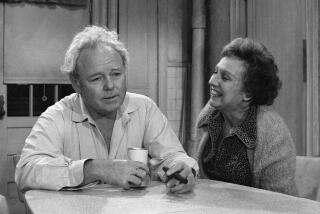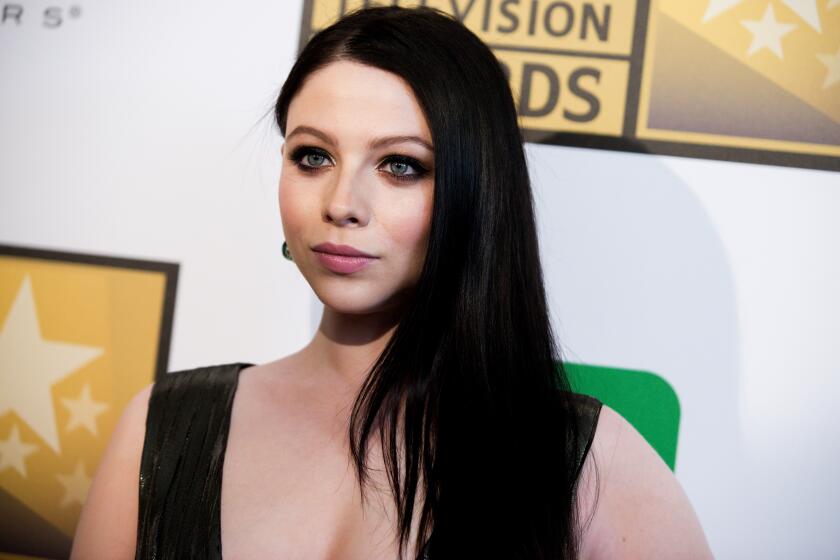Remade ‘70s Classics: The Next Generation
- Share via
“The Love Boat” soon will be making another run. And welcome--or rather, welcome back--to “Fantasy Island.”
The ‘70s--already upon us, again, at the movie theater, in the clothing store and on the radio dial--are soon to be upon us, again, on television screens everywhere.
Starting in April and all the way through the fall, networks and syndicated producers will be trotting out new versions of not just “The Love Boat” and “Fantasy Island” but also “Mary Tyler Moore” and, possibly, “Love, American Style.”
And there is “Donny and Marie” to look forward to--coming this fall in talk-show format--and even “Hollywood Squares.” (Paul Lynde died in 1982, so Whoopi Goldberg will be occupying the center square.)
In a television universe where most new shows barely survive to midseason (remember “Over the Top,” “Built to Last” and “The Visitor,” which all debuted last fall?), programming executives are desperate to attract audiences to anything that sounds familiar.
“Look, there are limits to the number of original ideas out there,” says ABC Entertainment President Jamie Tarses, who has green-lighted “Fantasy Island” and “Mary Tyler Moore” and has “Love, American Style” in development. “We’re trying to figure out what will work. You take a lot of shots and try things with a nostalgic sense. Maybe it’ll work, maybe not, but it would be foolish not to try.”
But ABC Entertainment Chairman Stu Bloomberg promises the shows will be completely updated. Totally different. Honest.
“It’s death if we keep doing the same old-same old thing,” he says. “Fantasy Island” will be produced by film director Barry Sonnenfeld (“Get Shorty”). Ricardo Montalban is unlikely to reappear. “Mary Tyler Moore” will bring back Moore as Mary Richards and Valerie Harper as Rhoda, playing themselves 20 years later with daughters who are their opposites.
Who could refuse Mary Tyler Moore? Says Bloomberg, “It’s a fun idea, and she is a TV icon, and her character is a TV icon--this is a kick.” Adds Tarses, “Also, you know you’ll bring people to the set to watch that for the first time.”
*
Still, not all the network powers agree that young audiences, the kind advertisers want most, will be drawn to the past. NBC Entertainment President Warren Littlefield, for one, notes the retooled classics will have to compete with reruns of the originals on Nick at Nite and TV Land. “Will we do better than that classic version? That’s the question.”
Nonetheless, Littlefield has ordered a pilot of “Wonder Woman” for the fall, though he has not committed to a series.
UPN chief Dean Valentine thought he was ahead of the curve when he had the idea of reviving “The Love Boat,” slated to start airing in April.
Nostalgia for the ‘70s “seems to be in the air,” he says. “It occurred to me that what’s missing on TV is a light romantic comedy like ‘The Love Boat.’ . . . Movies have plundered TV on a weekly basis--’The Brady Bunch,’ ‘McHale’s Navy.’ Why should they be the only ones to reinvent a TV franchise? Why can’t we revive the shows?”
For “Love Boat,” Valentine has hired the original’s producer, soap veteran Aaron Spelling, but it will feature a new cast. (Too many of the originals are otherwise employed, he says, including Fred Grandy, formerly Gopher, lately of Congress and now head of Goodwill Industries.)
Valentine disputes the notion that reviving old successes bespeaks a certain--how can we put this gently?--creative bankruptcy. “Look, is it creative vitality to do ‘Dellaventura’?” he retorts, referring to CBS’ recently canceled dud. “You can be just as creative doing a revival of ‘Love Boat’ as you can doing a show like that. It depends on the writer.”
But some believe that reviving oldies will never produce a major success. “It’s almost impossible to have a huge hit with known actors and a known concept. Huge hits always come out of left field,” says John Wells, executive producer of “ER.” “It’s when we don’t know anything about the characters, that’s when the audiences connect. But for that we need to go back to the seat-of-your-pants, pit-of-the-stomach programming.”
More to Read
The complete guide to home viewing
Get Screen Gab for everything about the TV shows and streaming movies everyone’s talking about.
You may occasionally receive promotional content from the Los Angeles Times.






